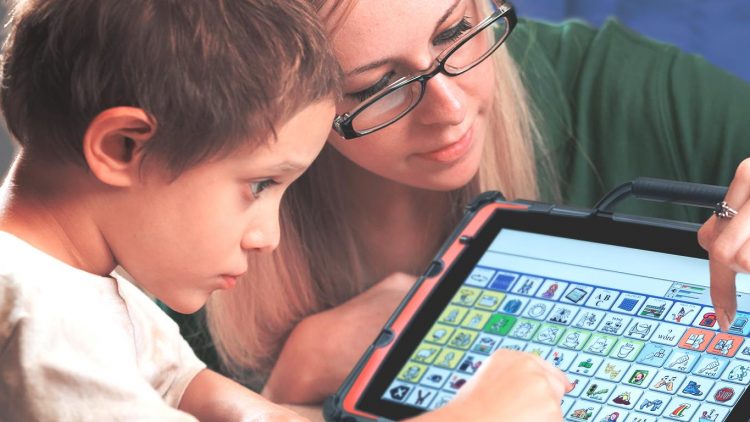Augmentative and Alternative Communication (AAC)
About AAC
You may have seen someone write in a notebook to answer a question. Maybe you have seen people using sign language or other gestures. You may have seen someone push buttons on a computer that speaks for them. These are all forms of augmentative and alternative communication, or AAC.
AAC includes all of the ways we share our ideas and feelings without talking. We all use forms of AAC every day. You use AAC when you use facial expressions or gestures instead of talking. You use AAC when you write a note and pass it to a friend or coworker. We may not realize how often we communicate without talking.
People with severe speech or language problems may need AAC to help them communicate. Some may use it all of the time. Others may say some words but use AAC for longer sentences or with people they don’t know well. AAC can help in school, at work, and when talking with friends and family.
Types of AAC
Do you or your loved one have difficulty talking? There are options that might help. There are two main types of AAC—unaided systems and aided systems. You may use one or both types. Most people who use AAC use a combination of AAC types to communicate.
Unaided Systems
You do not need anything but your own body to use unaided systems. These include gestures, body language, facial expressions, and sign language.
Aided Systems
An aided system uses some sort of tool or device. There are two types of aided systems—basic and high-tech. A pen and paper is a basic aided system. Pointing to letters, words, or pictures on a board is a basic aided system. Touching letters or pictures on a computer screen that speaks for you is a high-tech aided system. Some of these speech-generating devices, or SGDs, can speak in different languages.
Working With A Speech-Language Pathologist
An SLP will test how well you or your loved one can speak and understand. The SLP can help find the right AAC system for you. You may use a basic system first and may need it for only a short time. This may happen if you had mouth surgery or a stroke and your speech comes back.
It may take some time to get a more high-tech system, if you need one. Not every device works for every person, so it is important to find the right one for you. The Information for AAC Users webpage has more information about finding the best AAC system. Insurance or other funding can help you pay for your AAC device.
See ASHA information for professionals on the Practice Portal’s Augmentative and Alternative Communication page.

